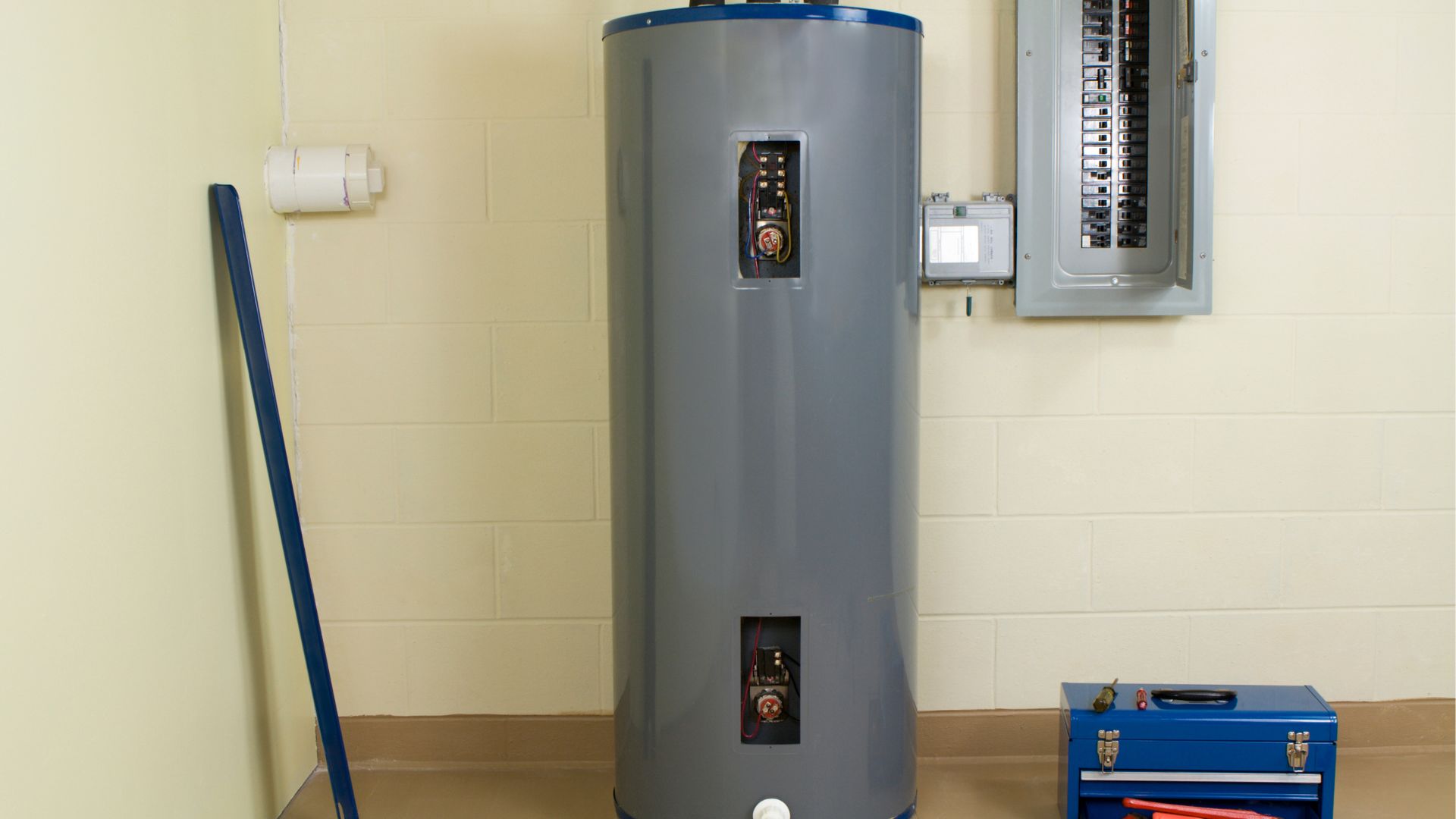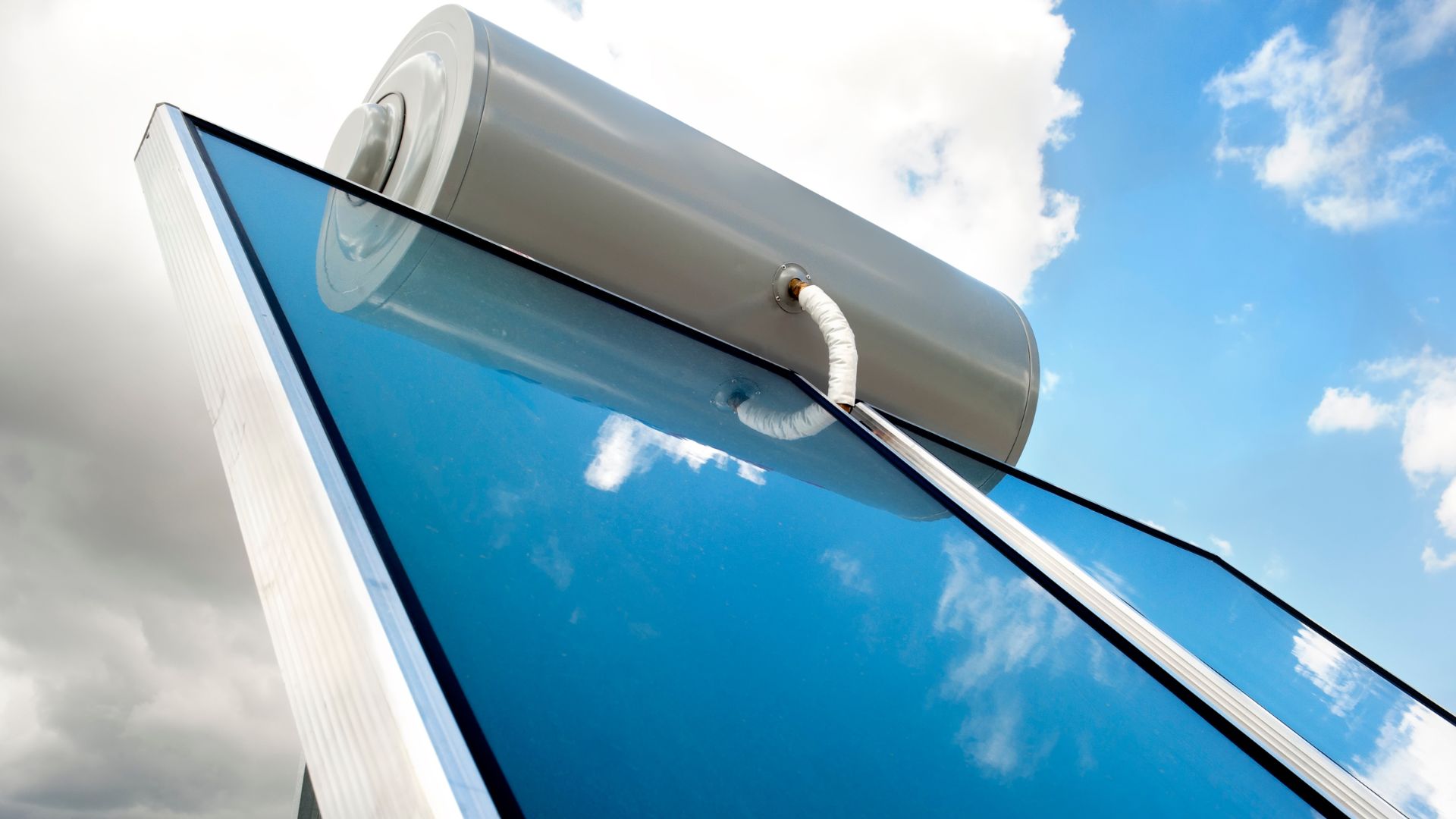Wondering how long your hot water system will stick around? Maybe you’re considering an upgrade. Picking the right system is key to boosting efficiency, cutting costs, and keeping your home’s hot water flowing smoothly. Since it’s a big investment, knowing the lifespan of each option helps you plan for what’s ahead.
In this guide, we’ll explore the differences between electric and solar hot water systems, examining their durability and benefits to help you make a well-informed decision.
Exploring Electric Hot Water Systems
Electric hot water systems are a popular choice for many households across Australia. These systems heat water through electric elements, providing consistent hot water on demand. Their functionality is straightforward: water is stored in a tank and heated using one or more electric elements, allowing easy access when needed.

Advantages
People like electric hot water systems for their simple installation and dependability. Their flexibility means they can be installed almost anywhere, fitting various property types.
Plus, they consistently deliver hot water year-round, rain or shine, ensuring your home’s comfort isn’t compromised by the weather.
Considerations
While electric hot water systems have many advantages, their lifespan can be influenced by several factors. The water quality, maintenance frequency, and overall usage patterns all play roles in determining how long the system will last.
Regular maintenance, such as flushing the tank to reduce sediment build-up, is crucial to extend the life of an electric hot water system.
Exploring Solar Hot Water Systems
Solar hot water systems harness the power of the sun to heat water, making them a highly energy-efficient choice for households. These systems typically consist of solar collectors, which absorb sunlight, and a storage tank where the heated water is kept.
By utilising solar energy, these systems can provide a significant reduction in energy bills.

Advantages
One key benefit of solar hot water systems is their energy efficiency. They use renewable energy, which helps reduce electricity bills and significantly lessens the environmental impact.
Solar systems are perfect for homeowners seeking a sustainable solution with long-term cost benefits.
Considerations
The lifespan of a solar hot water system can vary depending on factors such as climate, installation quality, and regular servicing. A well-installed system that receives adequate maintenance will last much longer. However, prolonged cloudy conditions can affect the performance of solar systems, which may necessitate a backup heating source.
Comparative Analysis: Lifespan Insights
Electric Systems Lifespan
On average, electric hot water systems last between 8 and 12 years. Things like water quality, how often they’re maintained, and usage can tip the balance either way.
Hard water, being high in minerals, accelerates wear and tear. That’s where regular servicing and replacing parts like the heating element or sacrificial anode come in to keep it running longer.
Solar Systems Lifespan
Solar hot water systems generally have a lifespan of 15 to 20 years, provided they are well-maintained. Solar collectors are typically durable, but their longevity may be impacted by factors such as extreme weather events or poor installation practices. The storage tank and other components may require replacement over time, but consistent maintenance will ensure the system provides optimal performance for years.
Key Differences
When comparing electric and solar systems, the differences in durability, maintenance requirements, and lifespan become apparent. Solar systems tend to last longer than electric ones but also require more diligent maintenance to keep all components in good working order.
Environmental factors play a major role in the lifespan of both systems—electric systems are less affected by weather, while solar systems’ performance may vary depending on climate conditions.
Ultimately, choosing between the two will depend on how much effort homeowners will put into maintaining their hot water system and their specific usage needs.
Cost Implications Over Time
Initial Costs vs. Longevity
Solar hot water systems generally come with a heftier price tag upfront because of their solar collectors and more complicated installation. But in the long run, their longer lifespan and lower operating costs might turn out to be more cost-effective.
On the flip side, electric systems are cheaper to start with, but the consistent energy costs might eat into those initial savings over time.
Long-term Savings
Considering each system’s lifespan is crucial when calculating long-term savings. Solar systems can significantly reduce energy costs, especially in sunny regions, due to their reliance on free solar energy.
In contrast, electric systems incur consistent energy costs, which may increase over time. Factoring in maintenance and replacement costs is key to understanding the true value of each option.
Environmental and Energy Considerations
Sustainability
From an environmental perspective, solar hot water systems have a clear advantage due to their use of renewable energy, significantly reducing greenhouse gas emissions over their lifespan. Depending on the source of electricity, electric systems may have a higher environmental footprint, mainly if powered by coal-based energy.
Energy Efficiency
The lifespan of a hot water system directly impacts its energy efficiency and environmental impact. Longer-lasting systems require fewer replacements, which means fewer resources used over time.
Solar systems are inherently energy-efficient and promote long-term sustainability. In contrast, electric systems are typically less efficient due to their reliance on electricity, especially in regions where renewable power is not predominant.
Making the Right Choice: Which Is Best for You?
Decision Factors
When choosing between electric and solar hot water systems, several key factors must be considered, including upfront costs, expected savings, maintenance needs, and environmental impact. Electric systems are easier to install and often less costly initially, while solar systems offer significant long-term savings and are a more sustainable choice.
Lifestyle and Location
Your lifestyle and location also play a crucial role in determining which hot water system is best for you. Solar systems are ideal for homes in sunny regions that can fully utilise solar energy.
However, electric systems may be more suitable for those who prefer the convenience of a simpler installation process and a reliable hot water supply, regardless of the weather.
Powering Your Home Efficiently
Selecting the right hot water system is a significant decision that impacts your finances and comfort at home. It’s essential to weigh the pros and cons of each system and consider factors like cost, energy efficiency, and environmental impact. Seeking professional advice can help you choose a system that meets your specific needs while maximising performance and longevity.
For expert assistance with electric hot water systems, contact Fixed Today. Our team is ready to help you make the right choice for your home’s needs.














